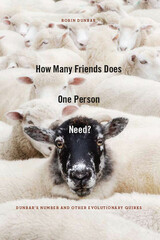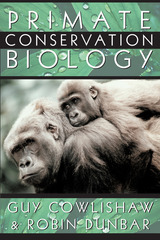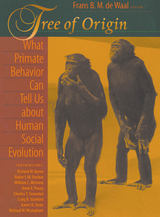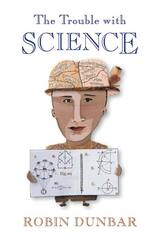
What a big brain we have for all the small talk we make. It's an evolutionary riddle that at long last makes sense in this intriguing book about what gossip has done for our talkative species. Psychologist Robin Dunbar looks at gossip as an instrument of social order and cohesion--much like the endless grooming with which our primate cousins tend to their social relationships.
Apes and monkeys, humanity's closest kin, differ from other animals in the intensity of these relationships. All their grooming is not so much about hygiene as it is about cementing bonds, making friends, and influencing fellow primates. But for early humans, grooming as a way to social success posed a problem: given their large social groups of 150 or so, our earliest ancestors would have had to spend almost half their time grooming one another--an impossible burden. What Dunbar suggests--and his research, whether in the realm of primatology or in that of gossip, confirms--is that humans developed language to serve the same purpose, but far more efficiently. It seems there is nothing idle about chatter, which holds together a diverse, dynamic group--whether of hunter-gatherers, soldiers, or workmates.
Anthropologists have long assumed that language developed in relationships among males during activities such as hunting. Dunbar's original and extremely interesting studies suggest otherwise: that language in fact evolved in response to our need to keep up to date with friends and family. We needed conversation to stay in touch, and we still need it in ways that will not be satisfied by teleconferencing, email, or any other communication technology. As Dunbar shows, the impersonal world of cyberspace will not fulfill our primordial need for face-to-face contact.
From the nit-picking of chimpanzees to our chats at coffee break, from neuroscience to paleoanthropology, Grooming, Gossip, and the Evolution of Language offers a provocative view of what makes us human, what holds us together, and what sets us apart.

Why do men talk and women gossip, and which is better for you? Why is monogamy a drain on the brain? And why should you be suspicious of someone who has more than 150 friends on Facebook?
We are the product of our evolutionary history, and this history colors our everyday lives—from why we joke to the depth of our religious beliefs. In How Many Friends Does One Person Need? Robin Dunbar uses groundbreaking experiments that have forever changed the way evolutionary biologists explain how the distant past underpins our current behavior.
We know so much more now than Darwin ever did, but the core of modern evolutionary theory lies firmly in Darwin’s elegantly simple idea: organisms behave in ways that enhance the frequency with which genes are passed on to future generations. This idea is at the heart of Dunbar’s book, which seeks to explain why humans behave as they do. Stimulating, provocative, and immensely enjoyable, his book invites you to explore the number of friends you have, whether you have your father’s brain or your mother’s, whether morning sickness might actually be good for you, why Barack Obama’s 2008 victory was a foregone conclusion, what Gaelic has to do with frankincense, and why we laugh. In the process, Dunbar examines the role of religion in human evolution, the fact that most of us have unexpectedly famous ancestors, and why men and women never seem able to see eye to eye on color.

Primate Conservation Biology begins with detailed overviews of the diversity, life history, ecology, and behavior of primates and the ways these factors influence primate abundance and distribution. Cowlishaw and Dunbar then discuss the factors that put primates at the greatest risk of extinction, especially habitat disturbance and hunting. The remaining chapters present a comprehensive review of conservation strategies and management practices, highlighting the key issues that must be addressed to protect primates for the future.

How did we become the linguistic, cultured, and hugely successful apes that we are? Our closest relatives--the other mentally complex and socially skilled primates--offer tantalizing clues. In Tree of Origin nine of the world's top primate experts read these clues and compose the most extensive picture to date of what the behavior of monkeys and apes can tell us about our own evolution as a species.
It has been nearly fifteen years since a single volume addressed the issue of human evolution from a primate perspective, and in that time we have witnessed explosive growth in research on the subject. Tree of Origin gives us the latest news about bonobos, the "make love not war" apes who behave so dramatically unlike chimpanzees. We learn about the tool traditions and social customs that set each ape community apart. We see how DNA analysis is revolutionizing our understanding of paternity, intergroup migration, and reproductive success. And we confront intriguing discoveries about primate hunting behavior, politics, cognition, diet, and the evolution of language and intelligence that challenge claims of human uniqueness in new and subtle ways.
Tree of Origin provides the clearest glimpse yet of the apelike ancestor who left the forest and began the long journey toward modern humanity.

READERS
Browse our collection.
PUBLISHERS
See BiblioVault's publisher services.
STUDENT SERVICES
Files for college accessibility offices.
UChicago Accessibility Resources
home | accessibility | search | about | contact us
BiblioVault ® 2001 - 2024
The University of Chicago Press









